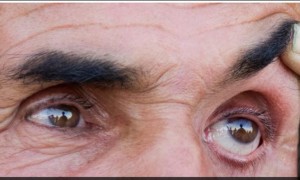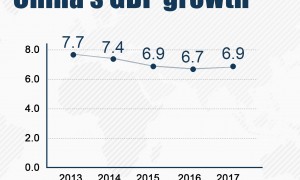She beat this drum for decades. In TV debates she would try to fill every minute, desperate to deliver her whole manifesto. She dreamed of a pan-Arab women’s movement of peasants, professionals and factory workers, mobilising to force change.
她为争取女性权利奔波数十年。在电视辩论中,她惜时如金,尽全力发表她的全部宣言。她梦想着召集一场由农民、专业人士和工厂工人组成的泛阿拉伯妇女运动,鼓舞各方力量推动变革。

As far as she could see, there were no proper feminists left; those she had met in America seemed to tolerate husbands even more brainlessly macho than Egyptian men. She was feted in the West, and her exile in the 1990s was spent teaching at Duke University in North Carolina. But the West was still the colonising enemy.
在她看来,已经没有真正的女权主义者了;她在美国遇到的那些“女权主义者”似乎可以容忍比埃及男人更无脑、更大男子主义的丈夫。她在西方受到了热情款待,上世纪90年代,当时被流放的她到北卡罗来纳州的杜克大学教书。但西方国家依旧是进行殖民统治的敌人。
In 2011 she naturally went to Tahrir Square to demand the toppling of Hosni Mubarak, whom she had meant to run against in 2005 until he banned her from media appearances: pointing a furious finger, tossing her mane of white hair. But she denounced the Muslim Brotherhood, when they won democratic elections the next year, as capitalist patriarchs tied to Islam and abetted by the West: unacceptable on every count. Better just to shout all the more.
2011年,她自发来到解放广场,要求推翻胡斯尼·穆巴拉克(Hosni Mubarak)的统治。2005年,她本打算与穆巴拉克同台竞选,但对方禁止她在媒体上露面:媒体的照片显示,她愤怒地伸出手指,甩动浓密的白发。但是,当穆斯林兄弟会在第二年的民主选举中获胜时,她谴责他们是与伊斯兰教密切相关、受到西方教唆的资本主义父权者:无论如何都是不可接受的。高声疾呼才是王道。
On a childhood visit to the seaside once, forbidden to bare her chest to the sunshine like her elder brother, she had watched the weed floating in the sea and felt her anger growing inside her. The shoots were a tender green at first, like the weed, but gradually turned blue, then black. There was simply so much injustice in the world, tangling root and branch, ever growing. Could her anger overwhelm it? She would try.
小时候去海边游玩时,家人不许萨达维像哥哥那样在阳光下袒胸露背,她看着海草漂浮在海面上,感到愤怒在心中滋长。愤怒的种子起初是嫩绿的,像野草一样,但逐渐变成蓝色,然后变成黑色。世界上有太多的不公,根与枝盘根错节,不断滋长。她的愤怒能压倒这一切吗?我们拭目以待。







